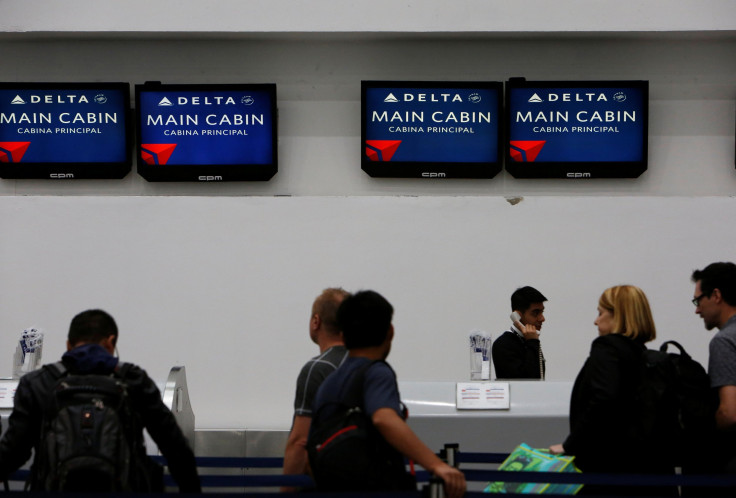Delta Wants To Replace Travelers' Boarding Passes With Fingerprints

Delta is now letting some passengers use their fingerprints as a boarding pass at Reagan Washington National Airport (DCA), the company announced Thursday.
The upgrade comes after Delta, in partnership with Clear, launched in May a program in which its SkyMiles members could enter the Delta Sky Club at DCA by using their fingerprints. Now, they can board a plane by using their fingerprints as proof of identity.
Read: Seattle's Sea-Tac Airport Creates Robot 'Tracy' To Help Travelers Get Through Security
Members will have to enroll with Clear to use the fingerprint feature. Delta said the final phase of the DCA biometric boarding pass test, which is coming this summer, will allow members to use their fingerprints when checking-in their luggage.
“It’s a win-win program,” Gil West, Delta’s Senior Executive Vice President & COO, said in a statement. “Biometric verification has a higher level of accuracy than paper boarding passes and gives agents more time to assist customers with seat changes and other skilled tasks instead of having to scan individual tickets – and customers have less to keep track of as they travel through the airport.”
Read: Extreme Vetting: Six U.S. Airports Now Use Facial Scans—Even On U.S. Citizens
Participation in the test is optional, and conclusions from the pilot will be used to broaden the use of the technology.
After testing is completed, Delta will extend the use of biometrics as ID to ticket counter workstations for baggage check.
“Once we complete testing, customers throughout our domestic network could start seeing this capability in a matter of months – not years,” West said.
Facial Recognition Technology at Airports
Besides fingerprint technology, Delta announced in May it was testing facial recognition technology at the Minneapolis-St. Paul International Airport this summer. A bag drop machine at the airport will be equipped with facial recognition technology to match travelers with their passport photos through identification verification. The tool is one out of four self-service bag drop machines installed at the airport.
"We expect this investment and new process to save customers time," Gareth Joyce, Delta's Senior Vice President of Airport Customer Service and Cargo, said at the time. "And, since customers can operate the biometric-based bag drop machine independently, we see a future where Delta agents will be freed up to seek out travelers and deliver more proactive and thoughtful customer service."
Delta isn’t the only airline company testing facial recognition technology. JetBlue announced in May it was using facial recognition software to create a “self-boarding process.” The feature launched at Boston Logan Airport on flights towards Aruba’s Queen Beatrix International Airport beginning in June. This mean travelers won’t have to hand over a boarding pass and will instead step up to a camera station. Customers will still have to go through TSA checkpoints.
While Delta and Jetblue experiment with fingerprints and facial recognition, other airports are using robots to accelerate passenger screenings. Seattle-Tacoma International Airport announced this month it is testing a robot called Tracy that gives travelers tips for getting through security faster, like reminding them to remove objects such as scarves, light jackets, belts and to empty their pockets.
© Copyright IBTimes 2024. All rights reserved.




















